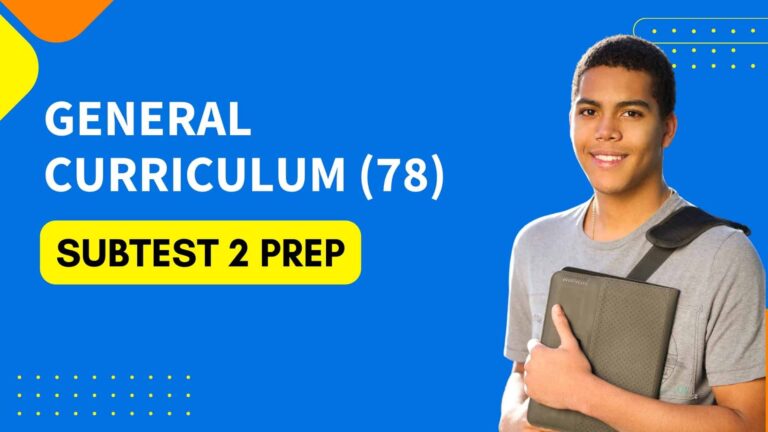
MTEL General Curriculum (78) Subtest 2 Exam
The Massachusetts Tests for Educator Licensure (MTEL) General Curriculum (78) exam assesses the proficiency and knowledge of candidates in key subject areas necessary for effective teaching at the elementary level. This exam aligns with Massachusetts educator licensure regulations and curriculum frameworks. It consists of two subtests: Subtest 1 (Language Arts and History/Social Science) and Subtest 2 (Mathematics, Science, and Technology/Engineering). Candidates typically take this exam near the completion of their undergraduate studies.
Overview
- Subtest 2: Mathematics, Science, and Technology/Engineering (278)
- Format: 60 multiple-choice questions, 1 open-response item
- Time: 4 hours for one or both subtests (excluding 15-minute CBT tutorial)
- Passing Score: 240 on each subtest
The following table details the structure and content areas of Subtest 2:
| Subareas | Range of Objectives | Approximate Test Weighting |
|---|---|---|
| Mathematics | 11–15 | 48% |
| Science and Technology/Engineering | 16–19 | 42% |
| Open-Response | 20 | 10% |
TeacherPreps study guide provides a comprehensive overview of the topics and skills you need to master to pass Subtest 2: Mathematics, Science, and Technology/Engineering.
Subarea I: Mathematics (48%)
- Number Theory and Operations: Understand number systems, operations, and properties.
- Fractions, Ratios, and Proportions: Apply concepts to solve problems involving fractions, ratios, and proportions.
- Algebraic Relationships: Analyze patterns, relationships, and functions.
- Geometry: Understand properties and applications of geometric figures.
- Measurement and Data: Apply measurement principles and interpret data.
Subarea II: Science and Technology/Engineering (42%)
- Earth and Space Science: Knowledge of the solar system, Earth’s features, weather, and climate.
- Life Science: Understand characteristics and structures of living organisms.
- Physical Sciences: Knowledge of matter, energy, and forces.
- Engineering Principles: Apply engineering design processes to solve problems.
Subarea III: Integration of Knowledge and Understanding (10%)
- Scenario Analysis: Prepare a written analysis integrating science/engineering and mathematics content.
